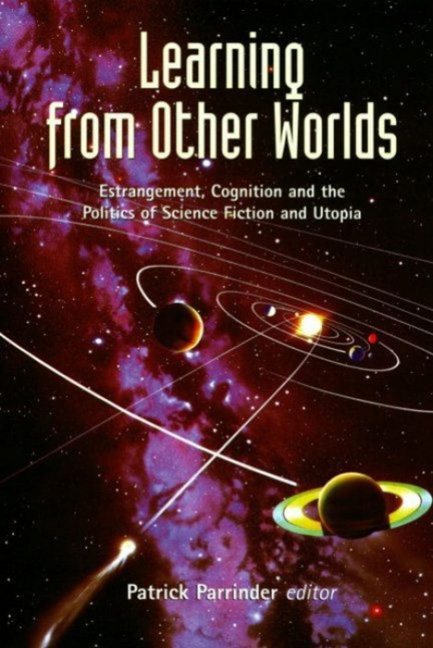Book contents
- Frontmatter
- Contents
- Acknowledgements
- Contributors
- Introduction: Learning from Other Worlds
- Part I Science Fiction and Utopia: Theory and Politics
- Before the Novum: The Prehistory of Science Fiction Criticism
- Revisiting Suvin's Poetics of Science Fiction
- ‘Look into the dark’: On Dystopia and the Novum
- Science Fiction and Utopia: A Historico-Philosophical Overview
- Society After the Revolution: The Blueprints for the Forthcoming Socialist Society published by the Leaders of the Second International
- Part II Science Fiction in its Social, Cultural and Philosophical Contexts
- Afterword: With Sober, Estranged Eyes
- Darko Suvin: Checklist of Printed Items that Concern Science Fiction (with Utopian Fiction or Utopianism, and a Few Bordering Items)
- Bibliography
- Index
Before the Novum: The Prehistory of Science Fiction Criticism
from Part I - Science Fiction and Utopia: Theory and Politics
- Frontmatter
- Contents
- Acknowledgements
- Contributors
- Introduction: Learning from Other Worlds
- Part I Science Fiction and Utopia: Theory and Politics
- Before the Novum: The Prehistory of Science Fiction Criticism
- Revisiting Suvin's Poetics of Science Fiction
- ‘Look into the dark’: On Dystopia and the Novum
- Science Fiction and Utopia: A Historico-Philosophical Overview
- Society After the Revolution: The Blueprints for the Forthcoming Socialist Society published by the Leaders of the Second International
- Part II Science Fiction in its Social, Cultural and Philosophical Contexts
- Afterword: With Sober, Estranged Eyes
- Darko Suvin: Checklist of Printed Items that Concern Science Fiction (with Utopian Fiction or Utopianism, and a Few Bordering Items)
- Bibliography
- Index
Summary
In 1967 Darko Suvin left Yugoslavia, first to go to the United States and then, a year later, to Canada. This chapter will look at the significance of Suvin's early criticism—as summed up in Metamorphoses of Science Fiction— by first examining the state of science fiction criticism before Suvin, and by comparing this with what Suvin brought to the field.
Just two years before Suvin's arrival in North America, the science fiction writer and critic James Blish had conveniently published a discussion of the development of the criticism of modern science fiction: ‘SF: The Critical Literature’. He achieved this by a discussion of just five books: Damon Knight's In Search of Wonder (1956); William Atheling, Jr's The Issue at Hand (1964), Sam Moskowitz's Explorers of the Infinite (1963); the collection of essays by science fiction writers edited by Basil Davenport, The Science Fiction Novel (1959), and Kingsley Amis's New Maps of Hell (1960). Only the last was written by somebody not intimately connected with the science fiction community; only the last was published by a major publisher on both sides of the Atlantic: the other four were all published by Advent Publishers Inc., an enterprise owned by SF fans in Chicago, with a small distribution almost entirely within the science fiction community. The contrast is skewed somewhat by Blish's emphasis on modern science fiction: thus, he excludes two earlier books that did have wider circulation but which concentrated on the more ‘respectable’ antiquarian origins of science fiction: Professor J. O. Bailey's Pilgrims through Space and Time (1947) and Dr Marjorie Hope Nicolson's Voyages to the Moon (1949).
Blish's five books—one of which, that by ‘William Atheling, Jr’, was in fact by Blish himself—were of very different styles and value as critical works. The Knight and Atheling volumes were collections of reviews and essays by practising science fiction writers: both of them rigorous in their exposure of poor writing and illogical thought, but very much viewing science fiction from within, and concentrating on individual works, rather than trying to place the whole genre historically or critically within literature as a whole.
- Type
- Chapter
- Information
- Learning from Other WorldsEstrangement, Cognition, and the Politics of Science Fiction and Utopia, pp. 19 - 35Publisher: Liverpool University PressPrint publication year: 2000

